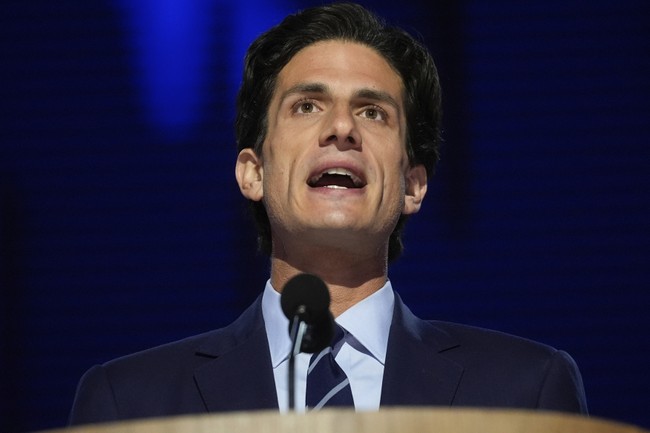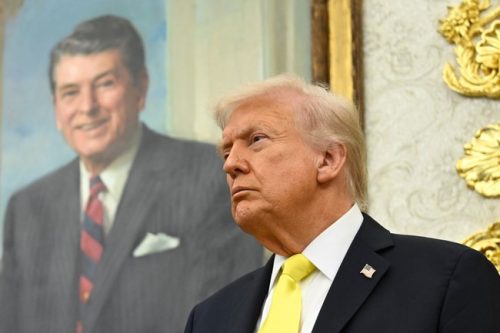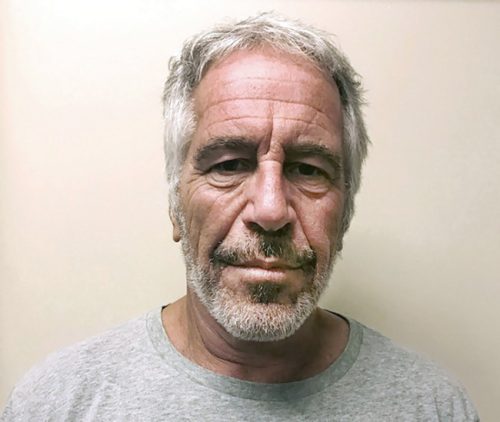A Kennedy scion running for New York’s open House seat has sparked controversy after a deleted social post showed him making what critics call a Nazi salute, stoking questions about political dynasties, accountability, and how the left treats extremism in its ranks.
Rep. Jerry Nadler’s retirement opened a valuable Democratic seat and drew predictable interest from ambitious politicians across the party. Among the contenders is Jack Schlossberg, the only grandson of President John F. Kennedy, who has announced a bid for the district and is trying to translate a famous name into modern political capital. Schlossberg’s family pedigree gives him instant recognition, but recognition does not shield a candidate from scrutiny when troubling behavior surfaces.
A since-deleted video reviewed by Washington Free Beacon shows Schlossberg performing a Nazi salute on camera, and that footage has become the focal point of the backlash. The post was reportedly intended as a swipe at Elon Musk after Musk was accused of making a similar gesture, but intent does not erase the image or the reaction it provokes. In politics optics matter, and a Kennedy heir making such a gesture is going to be an even bigger story precisely because of the family history involved.
🚨 BREAKING: The Democrats' new "Golden Boy" Congressional candidate Jack Schlossberg (NY-12) has been exposed in a now-deleted video performing a NAZI SALUTE.
He's now facing MAJOR blowback.
"Yo, check this out…✋"
Brutal.pic.twitter.com/zjBWfvLRlG
— Eric Daugherty (@EricLDaugh) November 14, 2025
Jack Schlossberg, a Kennedy family scion and Democratic primary candidate for New York’s 12th Congressional District, performed a Nazi salute in a since-deleted Instagram video reviewed by the Washington Free Beacon.
“Yo, yo, check this out,” Schlossberg said repeatedly into the camera as he performed the salute multiple times.
Schlossberg posted the video—since scrubbed from his social media—in January, likely intending to mock Elon Musk. The billionaire was the subject of controversy that same month when critics accused him of making a Nazi salute while telling an audience, “My heart goes out to you” during a rally celebrating President Donald Trump’s return to the White House.
Schlossberg’s social media activity has already caused a stir this week. The Free Beacon reported on Wednesday that Schlossberg, whose father is Jewish, had posted musings about producing “Jew Blood” and semen for a “MAHA energy ball.” The post appeared to mock Schlossberg’s mother’s cousin, Robert F. Kennedy Jr., and comments the secretary of health and human services made in 2023 suggesting COVID-19 may have been “ethnically targeted” to spare Ashkenazi Jews.
Beyond the video, other social media posts attributed to Schlossberg have raised eyebrows, including grotesque jokes about “Jew Blood” and references framed as mocking within a family rift that touches on Robert F. Kennedy Jr. Those posts feed into a larger narrative about tone-deaf behavior and poor judgment, especially from someone who wants to be a public servant in a diverse city. Voters and opponents are right to ask whether a candidate who posts such material understands the consequences of normalizing hateful imagery and language.
Some Democratic figures are already trying to manage the fallout, with Nadler reportedly skeptical about Schlossberg’s chances. That is telling because incumbents and party insiders often protect name-brand candidates if they think the alternative could cost the party. The fact that people inside the party are distancing themselves signals concern about the potential damage to the brand and the risk that a scandal-prone nominee could energize critics.
This episode also exposes an uncomfortable pattern: the left too often tolerates extreme or offensive behavior from its own without the same zeal for accountability demanded of conservatives. Recent elections saw Democrats nominate candidates who survived scandals, from vile statements to questionable tattoos, and those outcomes set a precedent that bad behavior will be forgiven if the ballot math favors the party. That double standard corrodes public trust and fosters the impression that rules are applied selectively.
History and family names give some candidates cover, but they are a poor substitute for judgment, discipline, and respect for the symbols that wound so many. Voters should expect better from someone invoking the Kennedy legacy, and the party should not assume celebrity equals suitability for office. Schlossberg’s situation is a reminder that pedigree cannot paper over poor choices, and that political capital evaporates fast once credibility is questioned.
Democratic operatives can spin, downplay, or try to reframe what happened, but the core issue remains straightforward: a public figure made a gesture tied to one of history’s worst movements and then scrubbed the evidence. How the party handles this — whether it demands accountability or shrugs it off — will tell us a lot about its priorities heading into the next election cycle. Voters in the district will decide whether a famous name is worth overlooking behavior such as this, and the answer will shape both the primary and the broader conversation about standards in public life.






